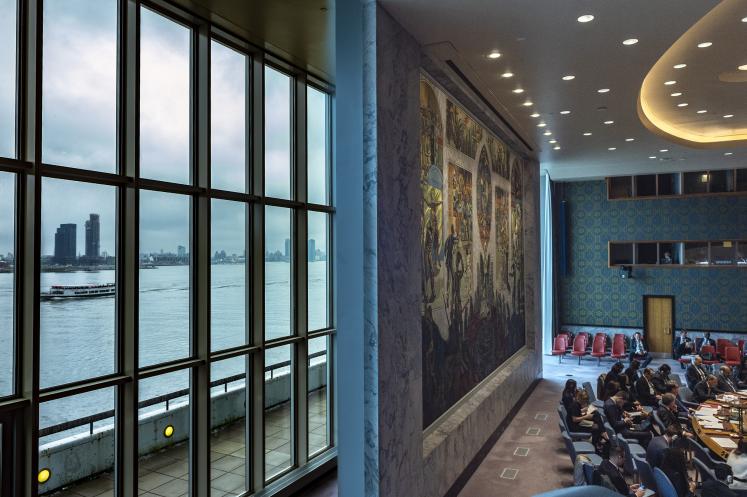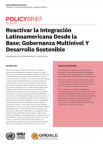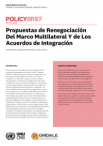Since it was launched in its current form in New York in July 2018 – merging United Nations University's existing New York office with policy experts previously based in Tokyo – UNU Centre for Policy Research has quickly become a respected contributor to UN policy debates. We have close working relationships with the Executive Office of the Secretary-General and a wide range of UN agencies and Member States – with staff briefing UN forums including the Security Council, for instance – and we have partnered with some of the world’s leading investors and technology firms.
Multilateralism is going through a period of profound and rapid change. Power shifts, new technologies and deep social and economic changes are reshaping politics between and within States. The need for international cooperation to tackle global threats is greater than ever, and many multilateral institutions face unprecedented demands. But designing and delivering collective responses to global challenges is also an increasingly complicated business.
A growing number of actors – ranging from governments to corporations and NGOs – have an essential role to play in tackling today’s challenges. Classic, treaty-based multilateralism is frequently ill-suited to shaping and guiding the coalitions necessary to tackle issues ranging from migration to the impacts of technological innovation. The communications revolution has transformed diplomacy, allowing individuals and interest groups around the world to contribute to – or disrupt – decision-making processes that would once have taken place unobserved in New York or Geneva. Innovations in data gathering give the UN and other institutions opportunities to quantify policy challenges in unprecedented detail. Yet, just as more and more individuals have the chance to make their voices heard in global public policy debates, advances in Artificial Intelligence (AI) and robotics have the potential to reshape economic, political and ethical rules.
As a think tank working within the UN system, guaranteed academic independence under the United Nations University’s Charter, UNU-CPR is uniquely placed to respond to this shifting multilateral environment. Rather than servicing a specific UN department or agency, we are able to act as hub for multiple actors – both inside and outside the UN system – to convene and work together to address complex global challenges. As an entity with strong links to diverse academic and research communities, with an explicit mandate to inform policy, and drawing on UNU’s unique network of research institutes around the world, we are able to mix and match experts with different skills and knowledge to generate new research in short time frames. As members of the wider community of analysts and commentators that engage with UN Headquarters in New York, we are also able to contribute to policy debates on a wide range of pressing global challenges – notably the future of multilateralism itself.
Finally, as a young, agile think tank with experience of the wider UN system, we are in a position to innovate, identifying new ways to solve interrelated public policy challenges. In some cases, these may be short-term priorities. In others, they may be the beginning of long-term projects that we undertake – or spin-off to other partners. We have the freedom to respond to shifting global policy research needs, to be straightforward about what works and what does not, and to help lead UN policy debates into new and emerging areas.
Read the UNU-CPR Strategy 2019–2021.




